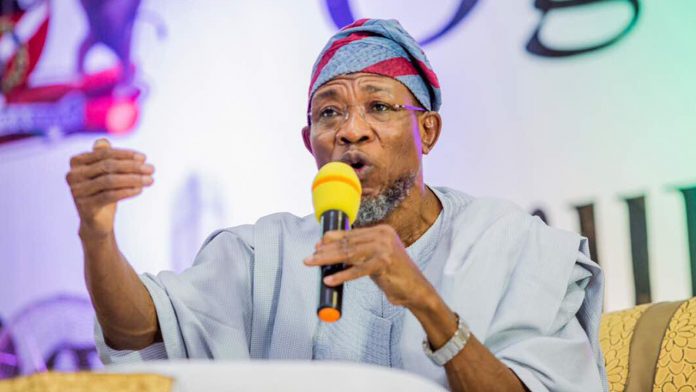The Federal Government on Tuesday in Abuja launched a New Visa Policy (NVP) to boost the nation’s economy and allow travellers to visit Nigeria without visas and only commence the process of obtaining visa upon arrival into the country.
The Service Public Relations Officer, Mr Sunday James, who disclosed this in a statement made available to News Agency of Nigeria (NAN) said the new visa policy broadened the scope of visa obtainment in Nigeria from the hitherto six categories to 79.
He said that the enhanced visa policy by Nigeria, one of Africa’s key economies, comes on the back of the signing of the African Continental Free Trade Agreement.
He added that it was a treaty seeking to establish a continent wide, marketplace with increased trade and freer movement among its major economic powers.
“The objective of the reforms that have birthed NVP 2020 is to strengthen Nigeria’s position as a key economy in Africa by attracting more Foreign Direct Investment (FDI) into the country.
“This would in turn provide jobs for the people and lift Nigeria’s teeming population out of poverty in line with the vision of President Muhammadu Buhari to take 100 million Nigerians out of poverty in the next 10 years.
“NVP 2020 is also designed to support the attainment of the Economic Recovery and Growth Plan (2017 -2020) and is a pathway to achieving the Security, Economy and Transparency (SET) Agenda of the present Administration,” he said.
The Minister of Interior, Ogbeni Rauf Aregbesola, while speaking at the launch of the NVP 2020, stated that its operation was cardinal to the ease of doing business in Nigeria.
Aregbesola said that the new visa regime was expected to boost economic activities in the areas of tourism, aviation, entertainment, commerce and other areas where Nigeria has comparative advantage over other African countries.
He added that it also presented Nigeria with the opportunity to apply the principle of reciprocity with her visa policy in the nation’s bilateral and multilateral relations.
“The NVP 2020 introduces special visas for Nigerians in diaspora who either by birth, marriage or nationalisation have assumed dual citizenship.
“Such category of Nigerians will now be able to make use of the passports of their adopted countries to visit Nigeria without the need for short stay visa,” he said.
The Minister expressed the commitment of the federal government to the implementation of the NPV 2020 in view of its supervisory role on the Nigeria Immigration Service (NIS).
He assured that the NIS would adhere to the published conditions of issuance of visas in a professional, timely and transparent manner.
He also assured that NIS would invest heavily in the training of the officers and men charged with the responsibility of processing visas in the entire visa issuing centres and passport control at points of entry.
“NIS would also work with all stakeholders within and outside Nigeria to ensure that the policy is not abused and the security of Nigeria and indeed other countries is not compromised,” he said.
He encouraged Nigerians in Diaspora to respect the provisions of the immigration laws of their new countries as well as those of Nigeria.
The Comptroller General, NIS, Mr Muhammad Babandede, spoke on the objectives, benefits and classes, with emphasis on the control aspect without compromising National security.
Babandede said that the new NVP presented a good opportunity for Nigeria to be a major consideration for investment in Africa and hosting of international events particularly the ones scheduled to hold in Africa.
“Some of the features of NVP 2020 include, Visa on Arrival for African Union nationals, increase in the classes of visas from 6 to 79, creation of visa codes for all classes of visa and introduction of e-visas.
“The implementation of the NPV 2020 will require collaboration with several MDAs involved in diplomacy, trade, investment, education, tourism, manufacturing, monetary policies, security, intelligence and many more.
“The new visa policy is expected to take Nigeria some steps up in the Africa Visa Openness Report published annually by the African Development Bank (AfDB) which would be a further boost on the global Ease of doing business league table.”






